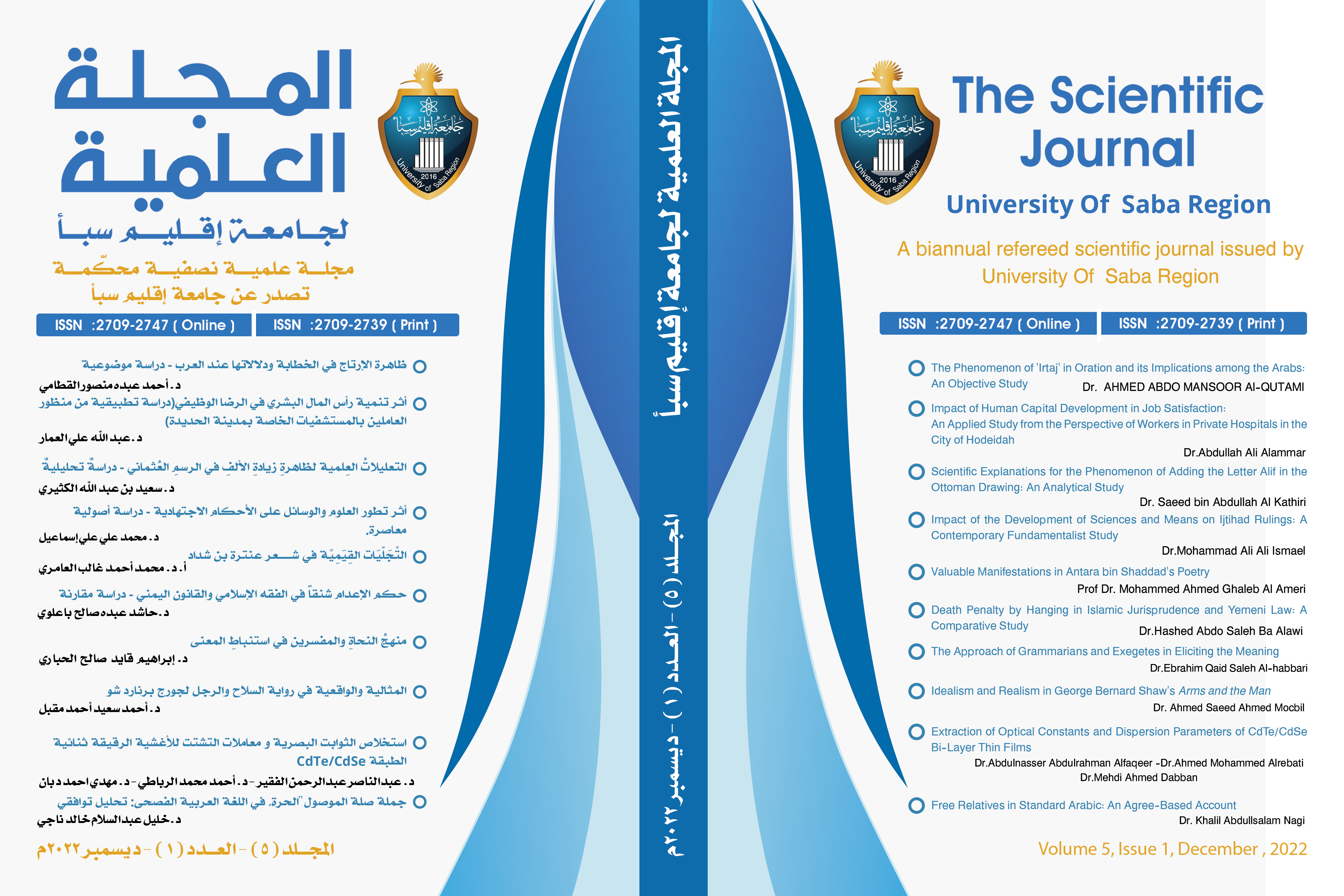The Approach of Grammarians and Exegetes in Eliciting the Meaning
DOI:
https://doi.org/10.54582/TSJ.2.2.50Keywords:
meaning, grammarians, exegetes, grammarAbstract
This This research is a descriptive analytical study. It includes three sections and a conclusion. The first section deals with the relationship between the language and the Glorious Qur’an, stressing the strong relationship between them. The second section deals with the way the grammarian and exegete look at meaning, explaining this with some examples from the Glorious Qur’an. The third section deals with the relationship among them, when interpreting the Quranic texts. The research aims to clarify the grammarian’s and exegete’s views of the meaning, the relationship between both views, and the way grammarians and exegetes deal with when interpreting the Quranic texts. The research concludes with some findings among which are that the grammarians confined their analysis to the language, with its matters of grammar, or its predominance in the interpretation of the Glorious Qur’an, contributed to the multiplicity of meaning, and its ambiguity, and led to the existence of a huge number of views and readings by the grammarians in the books of interpretations of the Glorious Qur’an, and that the differences in the exegetes’ interpretations are grounded on a grammatical base. The researcher recommends collecting readings that some grammarians claimed to have weakness, illusion or ungrammaticality, and directing them in the light of the Arabic dialects that correspond to them as hearing, and not to take the analogy control on the commonly-used speech by Arabs as a reason to respond to the rarely-used speech by them, and to prevent using it as an argument; that is because the fact that the Glorious Qur’an takes into account all the dialects of the Arabs by the time of revelation.
Downloads
Published
How to Cite
Issue
Section
License
Copyright (c) 2022 المجلة العلمية - جامعة إقليم سبأ

This work is licensed under a Creative Commons Attribution 4.0 International License.
Copyright and Licensing
This journal publishes all scientific materials under the Creative Commons Attribution 4.0 International (CC BY 4.0) , license, which grants you the following permissions:
You are free to:
- Share — copy and redistribute the material in any medium or format for any purpose, even commercially.
- Adapt — remix, transform, and build upon the material for any purpose, even commercially.
- The licensor cannot revoke these freedoms as long as you follow the license terms.
Under the following terms:
- Attribution — You must give appropriate credit , provide a link to the license, and indicate if changes were made . You may do so in any reasonable manner, but not in any way that suggests the licensor endorses you or your use.
- No additional restrictions — You may not apply legal terms or technological measures that legally restrict others from doing anything the license permits.
Notices:
You do not have to comply with the license for elements of the material in the public domain or where your use is permitted by an applicable exception or limitation .
No warranties are given. The license may not give you all of the permissions necessary for your intended use. For example, other rights such as publicity, privacy, or moral rights may limit how you use the material.











